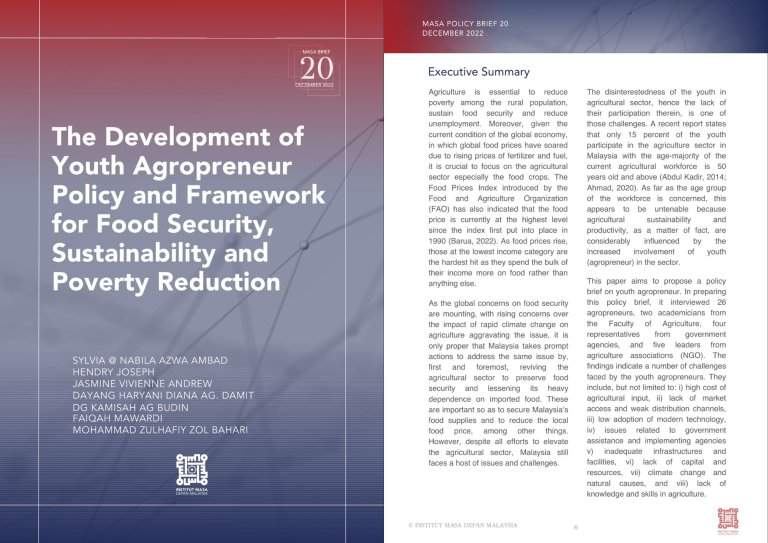Agriculture is essential to reduce poverty among the rural population, sustain food security and reduce unemployment. Moreover, given the current condition of the global economy, in which global food prices have soared due to rising prices of fertilizer and fuel, it is crucial to focus on the agricultural sector especially the food crops. The Food Prices Index introduced by the Food and Agriculture Organization (FAO) has also indicated that the food price is currently at the highest level since the index first put into place in 1990 (Barua, 2022). As food prices rise, those at the lowest income category are the hardest hit as they spend the bulk of their income more on food rather than anything else.
As the global concerns on food security are mounting, with rising concerns over the impact of rapid climate change on agriculture aggravating the issue, it is only proper that Malaysia takes prompt actions to address the same issue by, first and foremost, reviving the agricultural sector to preserve food security and lessening its heavy dependence on imported food. These are important so as to secure Malaysia’s food supplies and to reduce the local food price, among other things. However, despite all efforts to elevate the agricultural sector, Malaysia still faces a host of issues and challenges.
The disinterestedness of the youth in agricultural sector, hence the lack of their participation therein, is one of those challenges. A recent report states that only 15 percent of the youth participate in the agriculture sector in Malaysia with the age-majority of the current agricultural workforce is 50 years old and above (Abdul Kadir, 2014; Ahmad, 2020). As far as the age group of the workforce is concerned, this appears to be untenable because agricultural sustainability and productivity, as a matter of fact, are considerably influenced by the increased involvement of youth (agropreneur) in the sector.
This paper aims to propose a policy brief on youth agropreneur. In preparing this policy brief, it interviewed 26 agropreneurs, two academicians from the Faculty of Agriculture, four representatives from government agencies, and five leaders from agriculture associations (NGO). The findings indicate a number of challenges faced by the youth agropreneurs. They include, but not limited to: i) high cost of agricultural input, ii) lack of market access and weak distribution channels, iii) low adoption of modern technology, iv) issues related to government assistance and implementing agencies v) inadequate infrastructures and facilities, vi) lack of capital and resources, vii) climate change and natural causes, and viii) lack of knowledge and skills in agriculture.




